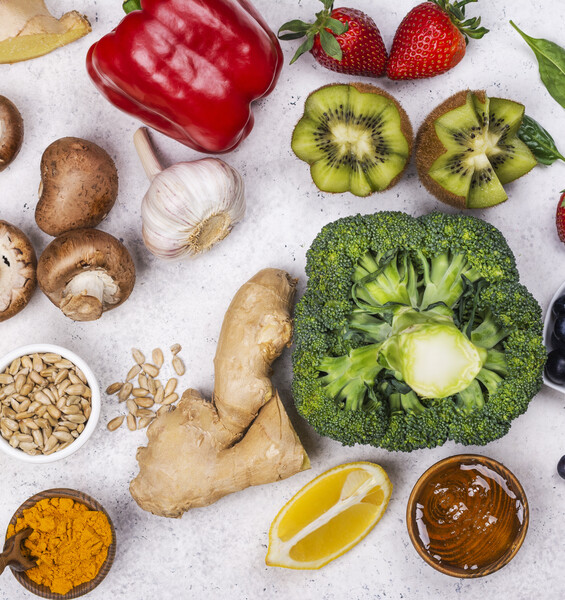The team of scholars of the Department of Chemistry and Drug Technologies, in collaboration with the University of Naples Federico II and the Mediterranean University of Reggio Calabria, highlighted the adjuvant role of some micronutrients against SARS-CoV-2 infection and the potential of active components as possible drug precursors. The review was published in Foods magazine


In response to the COVID-19 emergency, studies aimed at counteracting its spread or reducing symptoms and risks and recovering the health of the organism, have had a strong acceleration, particularly in the medical, engineering, diagnostics, psychological, economic and anthropological, while the potential contribution of food to the state of health has not been adequately investigated .
Yet, the strategic role of food and that of its components – be they macro, micronutrients or secondary metabolites – in the maintenance or development of a general state of health which, in turn, favors the fight against infections, including the viral ones contributing, at the same time, to alleviate any symptoms deriving from related pathologies.
Driven by these assumptions, the team of scholars led by Luisa Mannina of the Department of Chemistry and Drug Technologies of Sapienza, Alberto Ritieni and Michela Grosso of the University of Naples Federico II and Maria Teresa Russo of the Mediterranean University of Reggio Calabria, belonging to the national network of food chemistry (ITACHEMFOOD), has evaluated the role of food in the strategies adopted to deal with the current COVID-19 pandemic caused by the SARS-CoV-2 virus.
In the review, published in the Foods journal of the MDPI (Multidisciplinary Digital Publishing Institute) editorial group, the researchers evaluated the role of foods and their components as preventive and protective agents of viral infection and as adjuvants in anti COVID-19 therapeutic protocols.
Specifically, the review included an extensive bibliographic search that led to the identification of two main lines of research, both concerning the correlation between food and COVID-19. The first concerns the strengthening of the immune system through the intake of foods or their constituents , such as vitamins, minerals and secondary metabolites. The studies carried out through clinical trials currently underway are aimed at developing nutraceutical formulations to support traditional therapeutic protocols.
The second line of research focuses on the interactions between specific food components and the proteins involved in the SARS-CoV-2 viral cycle in order to identify active molecules as possible drug precursors to be evaluated by in vitro and in vivo tests .
“Thanks to the recognition and subsequent evaluations carried out in our work – concludes Luisa Mannina – we have shown that the strategies adopted at the moment highlight the potential role of foods in the prevention and / or support of conventional therapeutic protocols and therefore in dealing with the COVID-19 pandemic. However, it is important to always rely on scientific evidence to avoid the spread of false news which in this period have often dominated information, creating false myths and sometimes useless hopes “.
References:
Food and COVID-19: Preventive / Co-therapeutic Strategies Explored by Current Clinical Trials and in Silico Studies – Giacomo Di Matteo, Mattia Spano, Michela Grosso, Andrea Salvo, Cinzia Ingallina, Mariateresa Russo, Alberto Ritieni and Luisa Mannina – Foods 2020, 9 (8), 1036; https://doi.org/10.3390/foods9081036







































